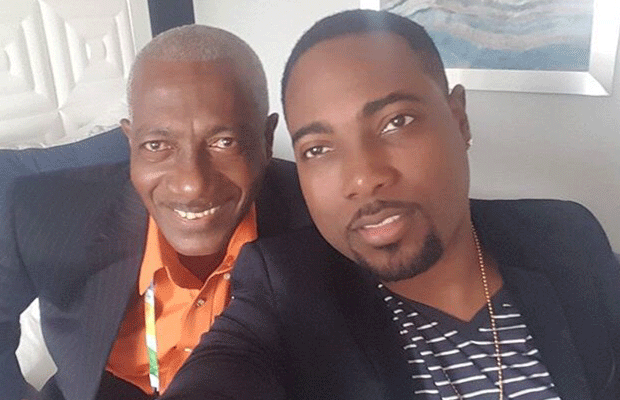Kyelle Virgil, who lives with severe hemophilia A and inhibitors in Trinidad and Tobago, remains undaunted in the face of the obstacles he has confronted since childhood. His classmates did not know about hemophilia and could not understand why he wouldn’t join them in their football and basketball games. He vividly remembers how they would taunt him when he was forced on the sidelines while they all played the sports he dearly loved. Frequent long hospital stays to treat recurring bleeds further isolated him from his community and friends. Now confined to a wheelchair after a left leg amputation, he faces accessibility issues that prevent him from enjoying a full social life. Despite these obstacles he remains optimistic about the future, fueled by a support community that stretches across borders, driven by the desire to continue his father Mervyn’s legacy of volunteerism in the bleeding disorders community.
In 2014, Kyelle received a World Federation of Hemophilia (WFH) Youth Fellowship to attend the WFH 2014 World Congress in Melbourne, Australia. While there, he created a global network of young people experiencing and overcoming obstacles like those he faced back home in Trinidad and Tobago.
Mervyn has been a volunteer with Trinidad and Tobago’s WFH national member organization (NMO), the Society for Inherited and Severe Blood Disorders, since 1987. The improvement he has seen in hemophilia care continues to inspire him. He witnessed firsthand the impact of the Port of Spain’s Hemophilia Treatment Center participating in the WFH Twinning program with their counterparts in Campinas, Brazil. Mervyn believes this was an excellent step towards improving patient care, and hopes to see a continuation of the program with other countries. The relationships developed while taking part in the program ensure local medical professionals stay abreast of the latest advances in treatment and care.
Mervyn credits the WFH for saving his son’s life. Kyelle has been living with inhibitors for over twenty years. The necessary bypassing agents are not readily available in Trinidad and Tobago and were provided by the WFH for Kyelle’s leg amputation and subsequent seven-month hospital stay.
Before his selection for the 2014 Youth Fellowship, Kyelle was organizing fundraising events for the Society for Inherited and Severe Blood Disorders. However, after meeting people from all over the world and learning about their experiences, he arrived back home with a newfound resolve to advocate for comprehensive care for all patients, but especially the younger generation in his country—not only to raise awareness and improve conditions but to make sure no one stands alone. “I see the need for a group of individuals who are committed to each other to work towards a common goal, bearing in mind that there is strength in numbers.”
Life without World Federation Hemophilia would have been extremely challenging and not to mention non-existent, as my country has no bypassing agents
– Kyelle Virgil
Mervyn applauds his son’s deepening engagement. While he will always be grateful for the WFH’s role in securing bypassing agents and providing medication through the WFH Humanitarian Aid Program, he knows there is still much work left to do.
Kyelle and Mervyn have obvious and personal reasons for believing people should support the work of the World Federation of Hemophilia. When asked what message they would deliver to potential supporters, they both at once referred to the community-building aspects of our work. And also, the training we provide that ensures healthcare professionals can diagnose and treat patients—with compassion and empathy. The workshops on advocacy that not only train community leaders on how to advocate for better treatment, but also how to communicate better to colleagues. And the data collection efforts that NMOs can use to show the impact of inaction to governments.
Join Kyelle, Mervyn and patients the world over in pursuit of our shared vision of Treatment for All by supporting our work today.












